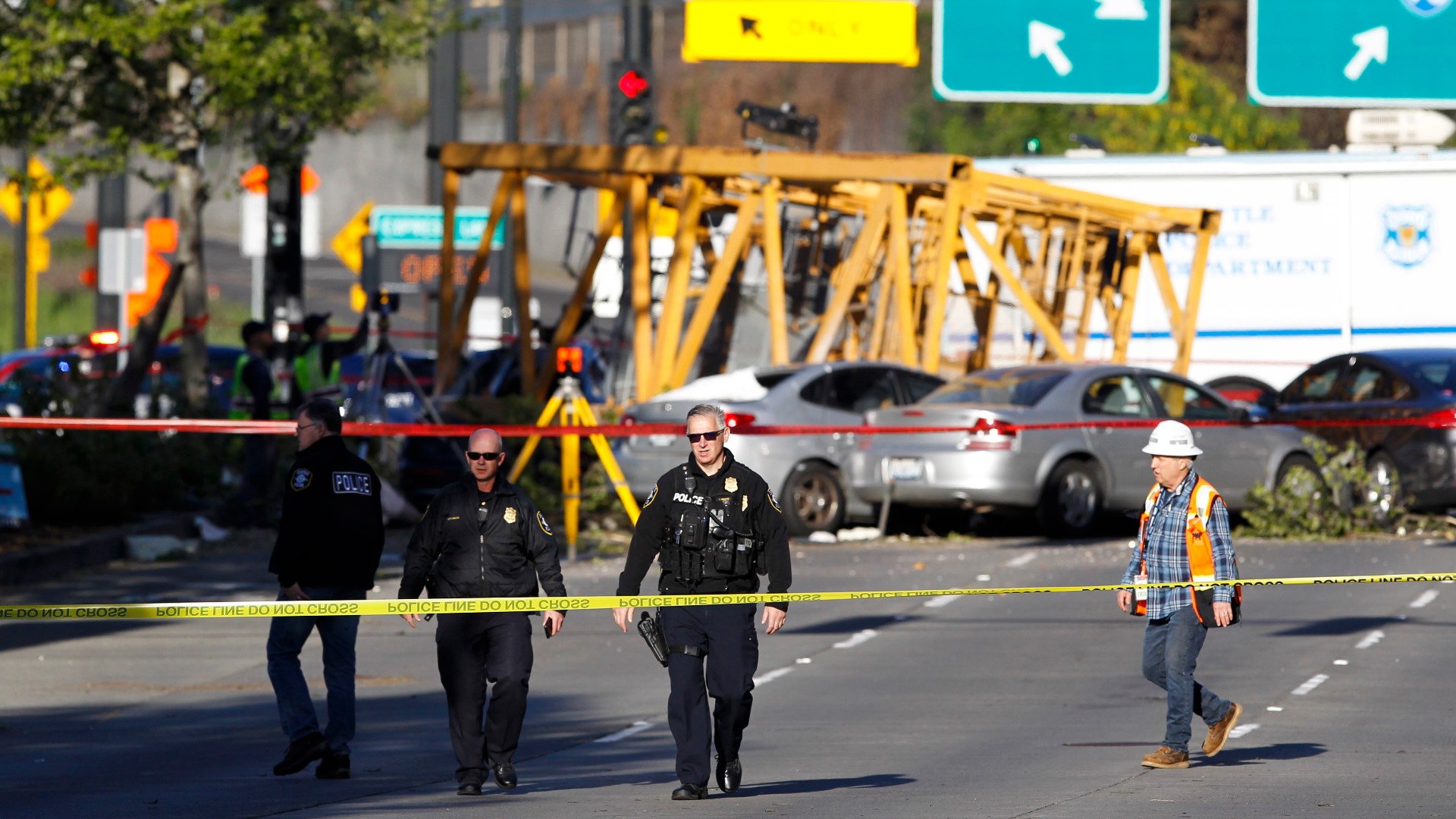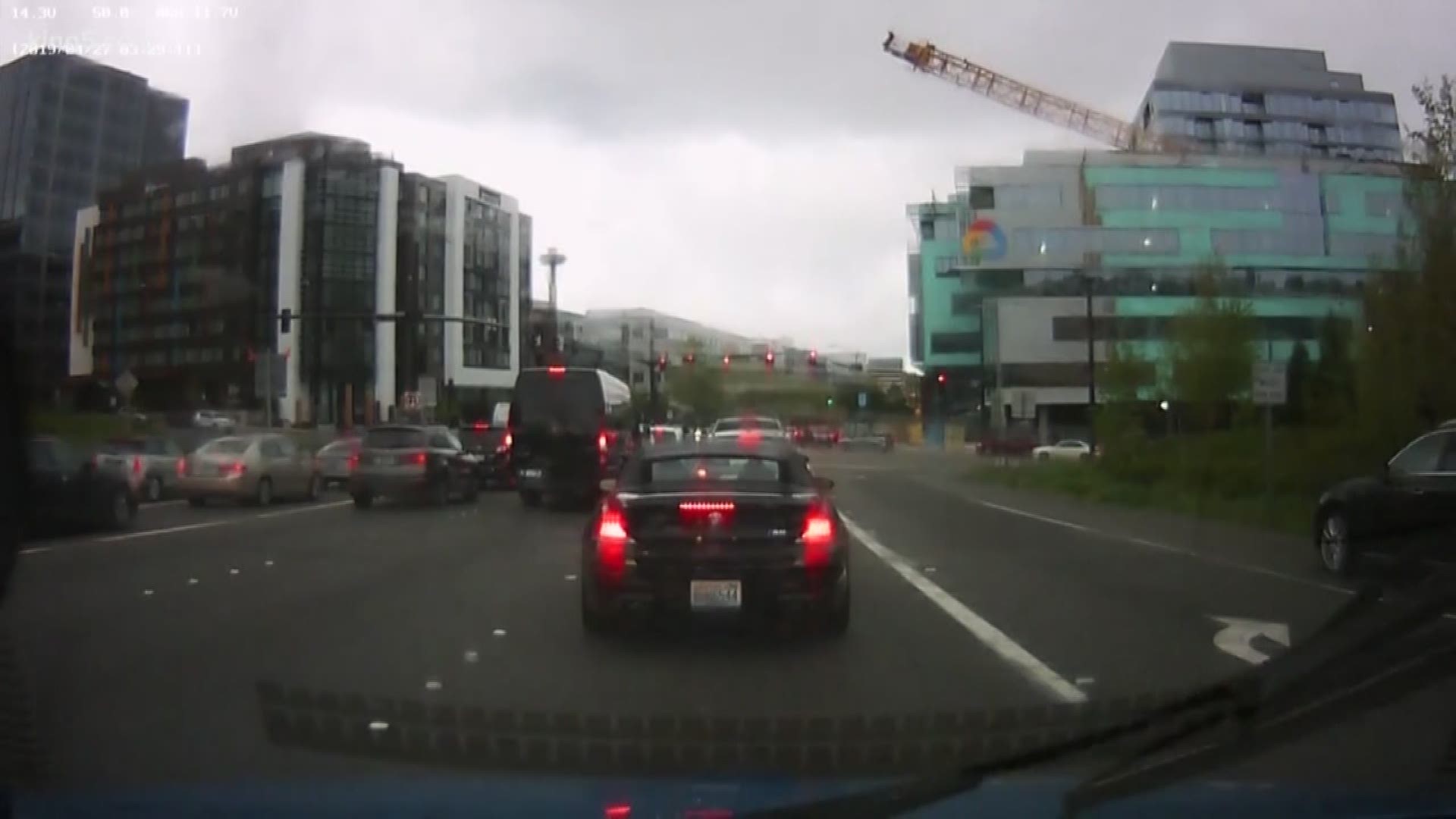Editor’s note: The video above was originally published in October 2019.
OLYMPIA, Wash. - The Washington state senator pushing for additional regulations around tower cranes and higher penalty fees for those who violate them worries it has become "industry practice" to cut corners.
Citing a work session and documents, Sen. Karen Keiser (D-Des Moines) said companies are disassembling cranes "a little faster by loosening bolts early" and taking other steps that aren't protocol from the manufacturers of tower cranes.
During the public hearing on Senate Bill 6171, Chris McClain, the business manager of Ironworkers Local 86 and vice president of Washington Building Trades, said "we support specifically any laws or policies that improve safety..."
The legislation is in response to a deadly crane collapse in Seattle's South Lake Union neighborhood in April of 2019.
Four people were killed in the collapse after companies did not follow the manufacturer’s procedures for dismantling the crane, which included prematurely removing nearly all of the pins and sleeves that helped hold the structure together, a Department of Labor & Industries investigation (L&I) found. The three companies -- Morrow Equipment, GLY Construction, and NW Tower Crane -- were issued fines ranging from $12,000 to $70,000.
If approved by the Legislature and signed by the governor, the legislation would require L&I to be present during the disassembly of every tower crane. It would allow L&I to assess a fee of up to $1,000 for each disassembly. If a company violates state law during disassembly of a tower crane and the violation is the cause of death, a company would face an additional $50,000 penalty.
A major issue pointed out during the hearing was the lack of qualified crane inspectors in the state. There are seven, two of which work in King County. Tammy Fellin, the legislative director for L&I, said the department does have the ability to move them around as needed.
Several people, including Morrow Equipment Corporate Service Manager Chris Smith, oppose the proposed changes.
Smith, along with Thom Sicklesteel of the National Commission for the Certification of Crane Operators, pointed out that a 48-hour notice to L&I for crane assembly/disassembly proposed within the legislation could create issues in times of an emergency. If a crane has an issue, it needs to come down immediately, Sicklesteel said.
"Is that a violation if you don't wait 48 hours?" he asked.
Sicklesteel argued the state should look at adjusting the current guidelines instead of creating additional laws.
In 2007, legislation was enacted requiring L&I to establish a crane certification program. Under that program, crane owners must ensure cranes are inspected and load proof tested by a certified inspector at least once a year and after any significant modification or repair. Tower cranes and parts must be inspected prior to assembly and after the crane is assembled. An inspector must notify L&I if a crane does not meet safety standards.


